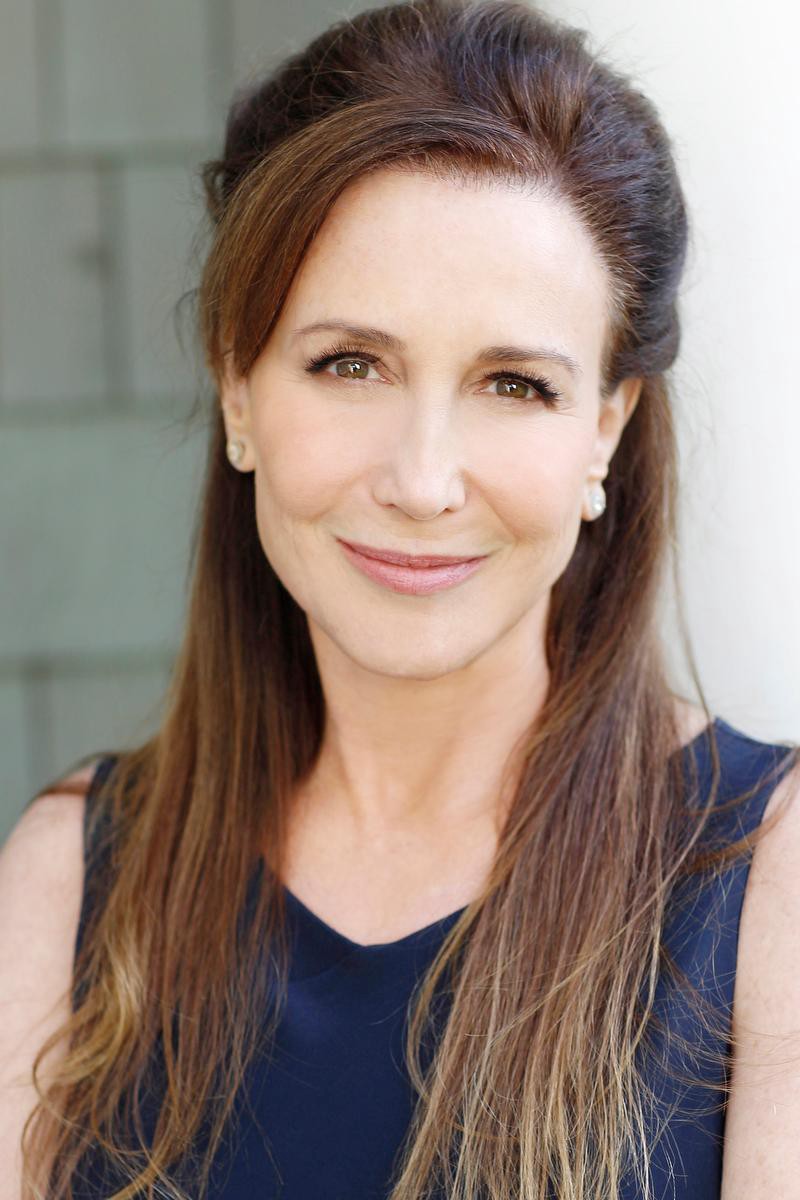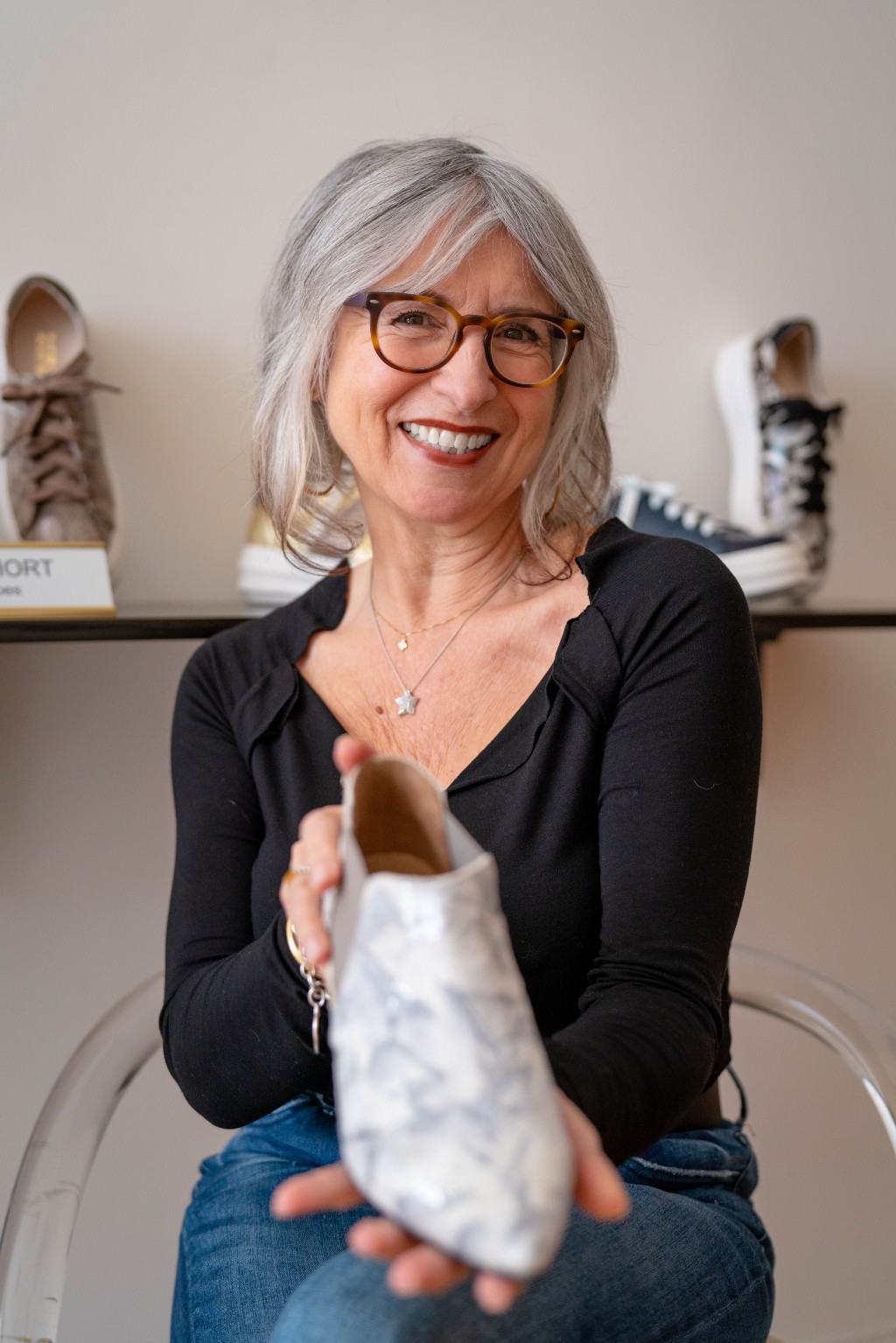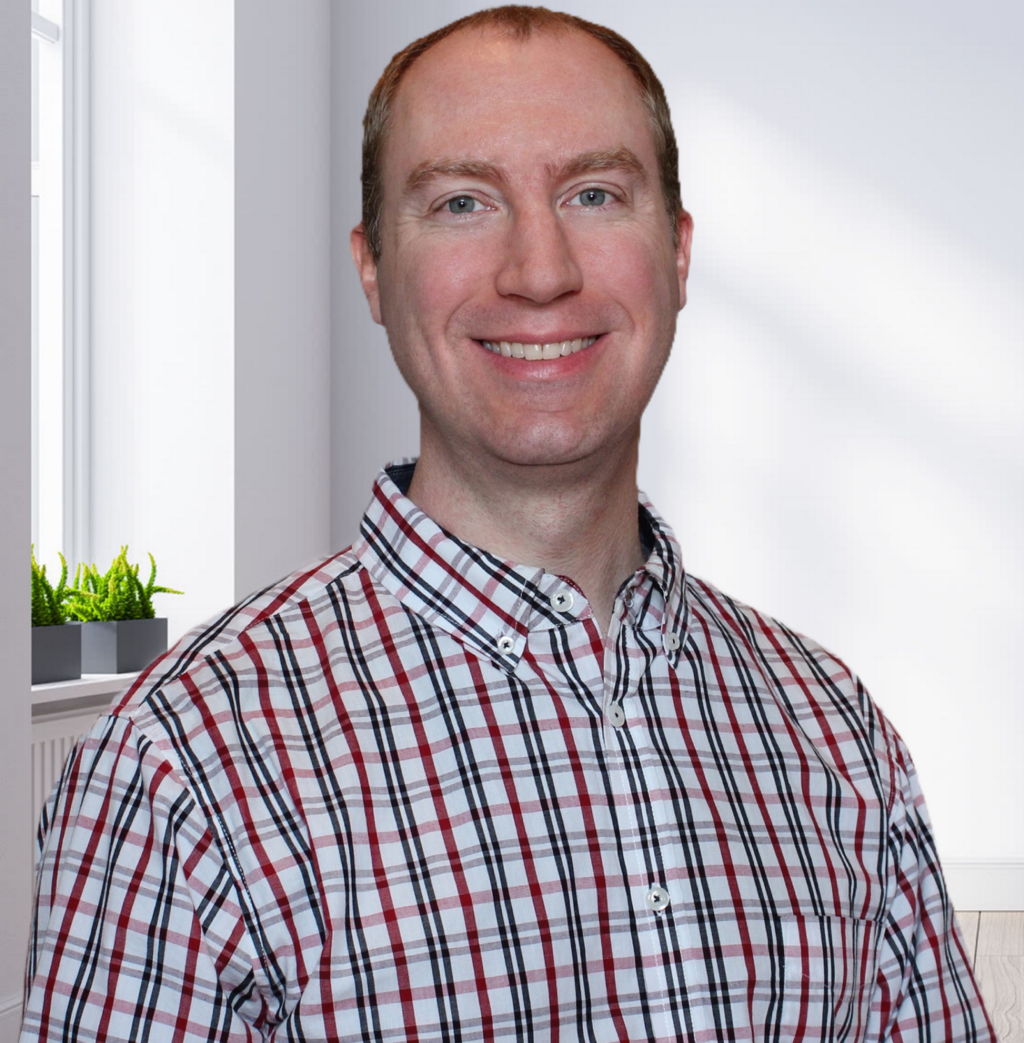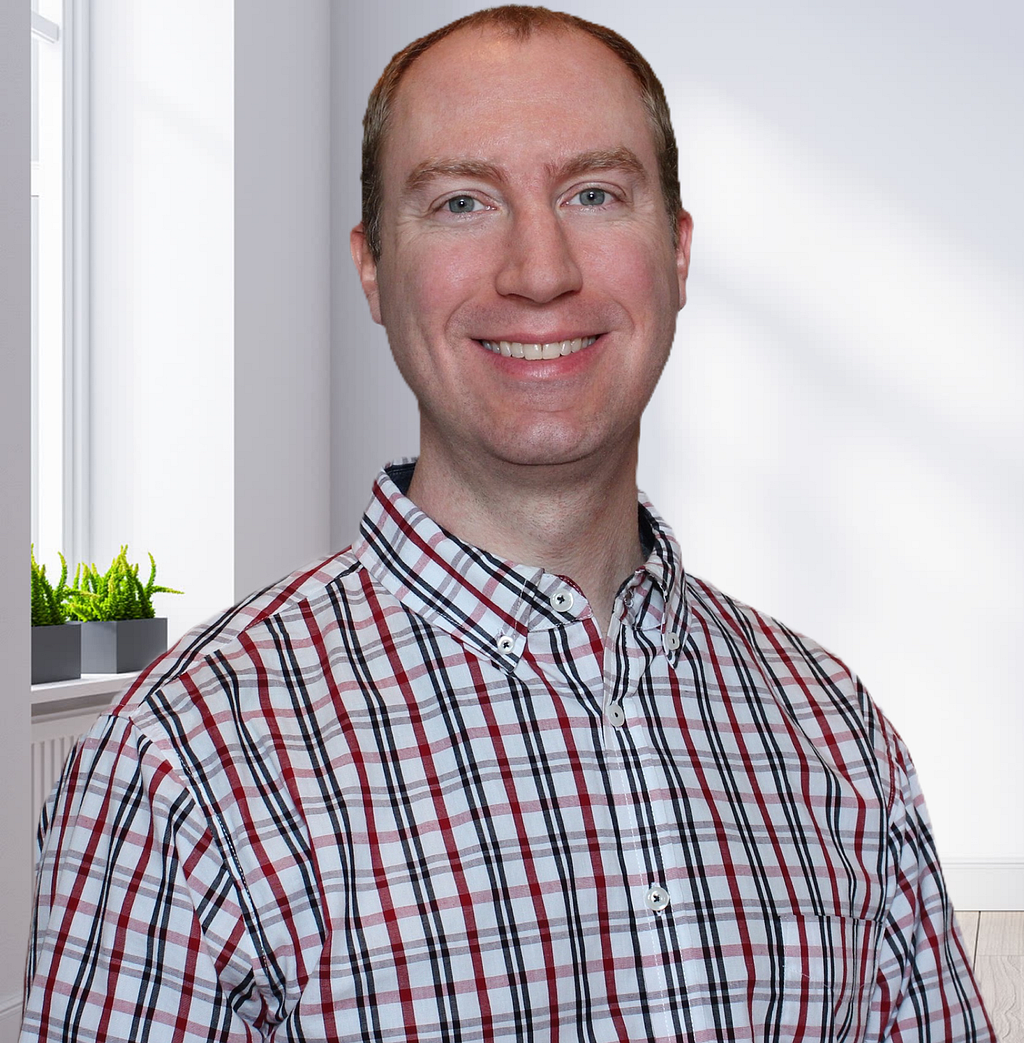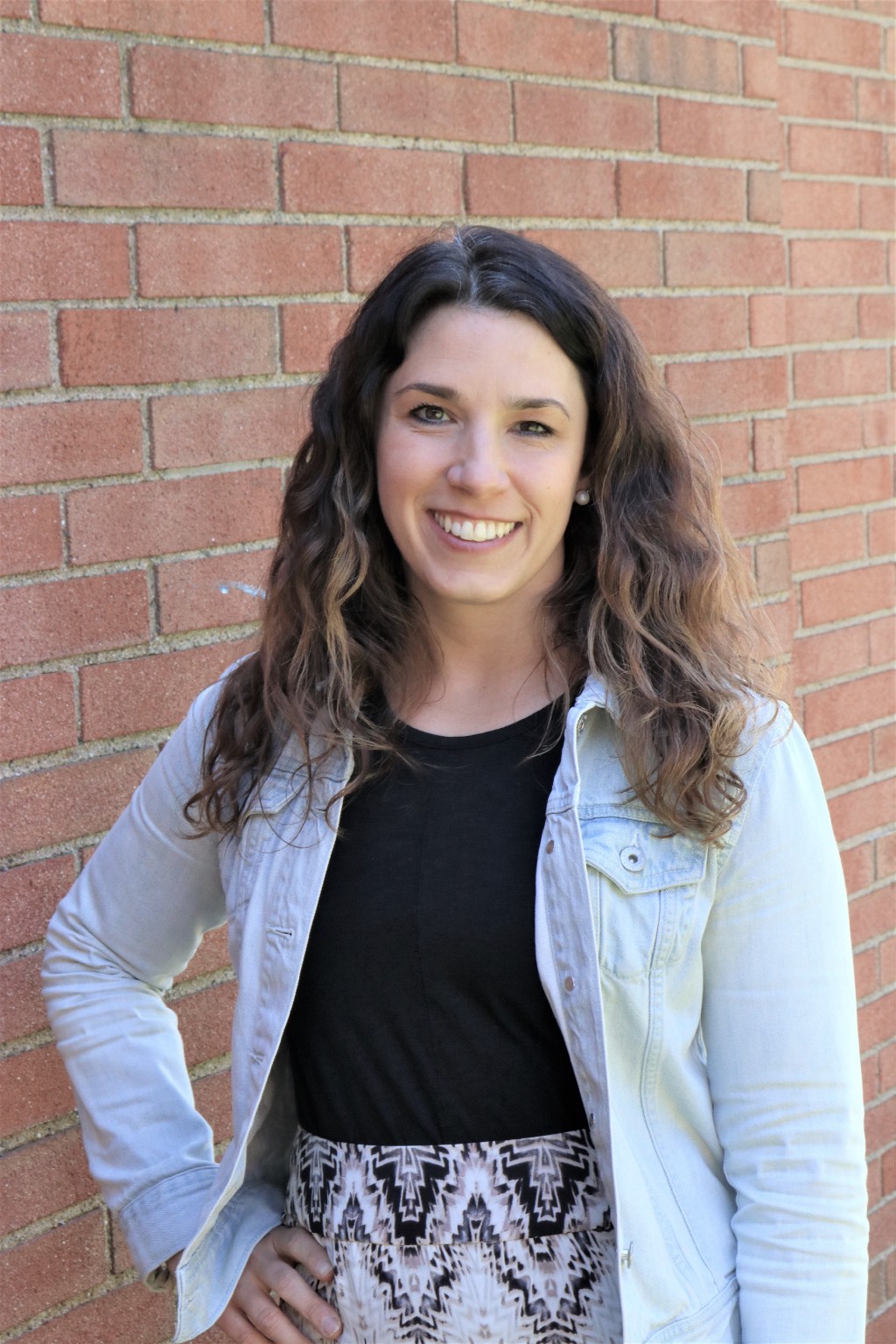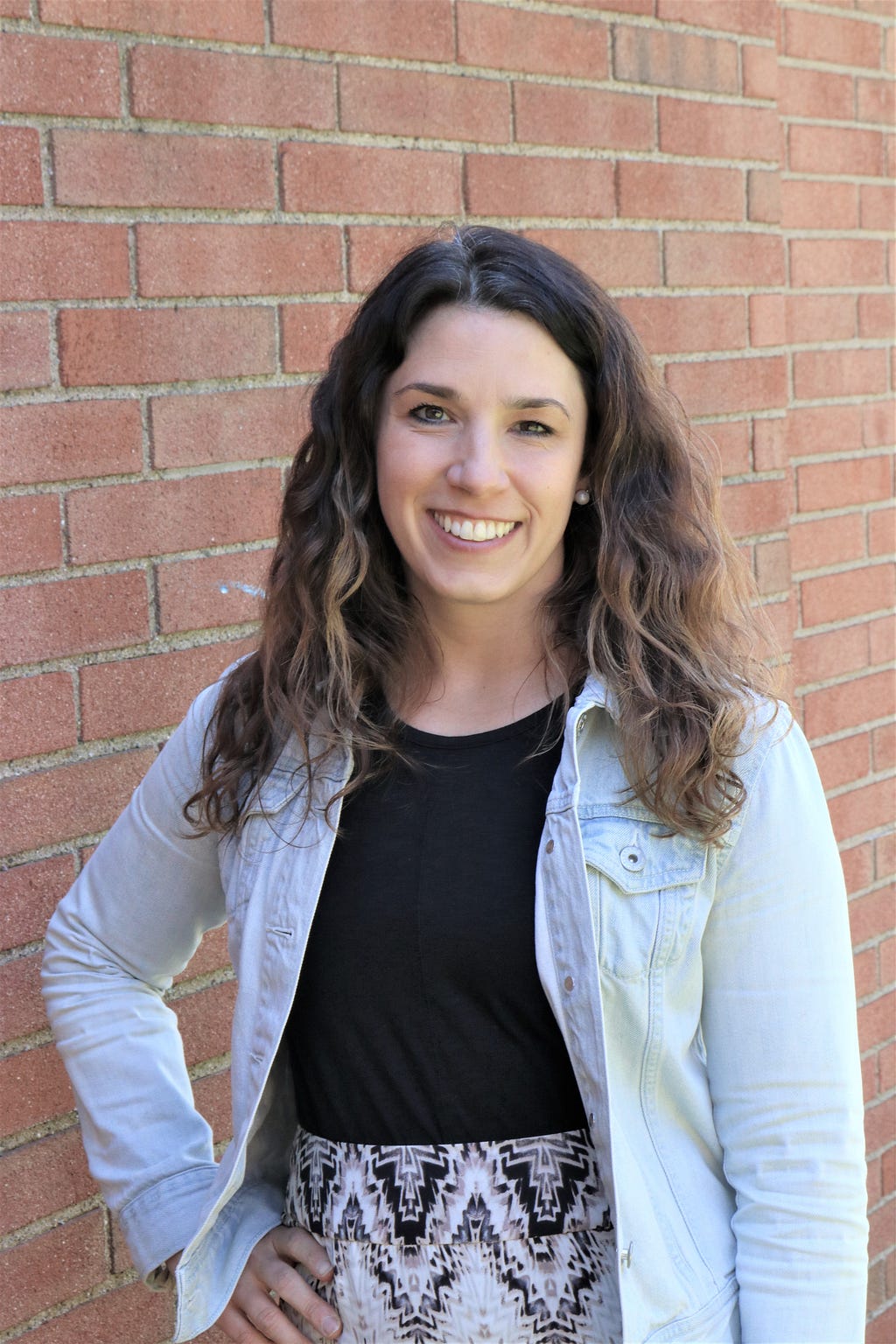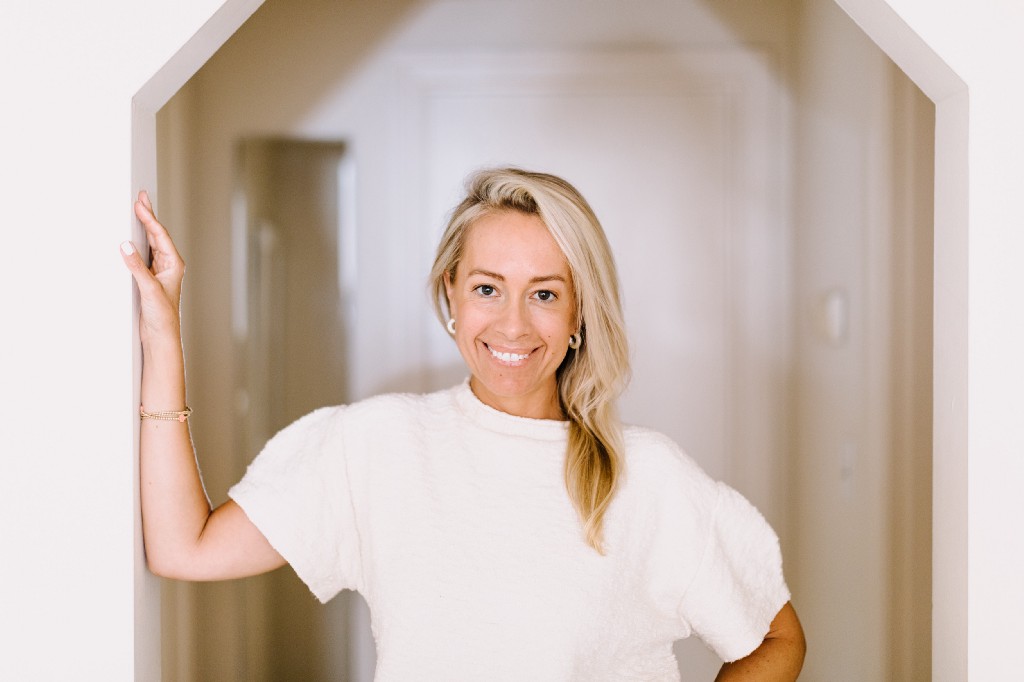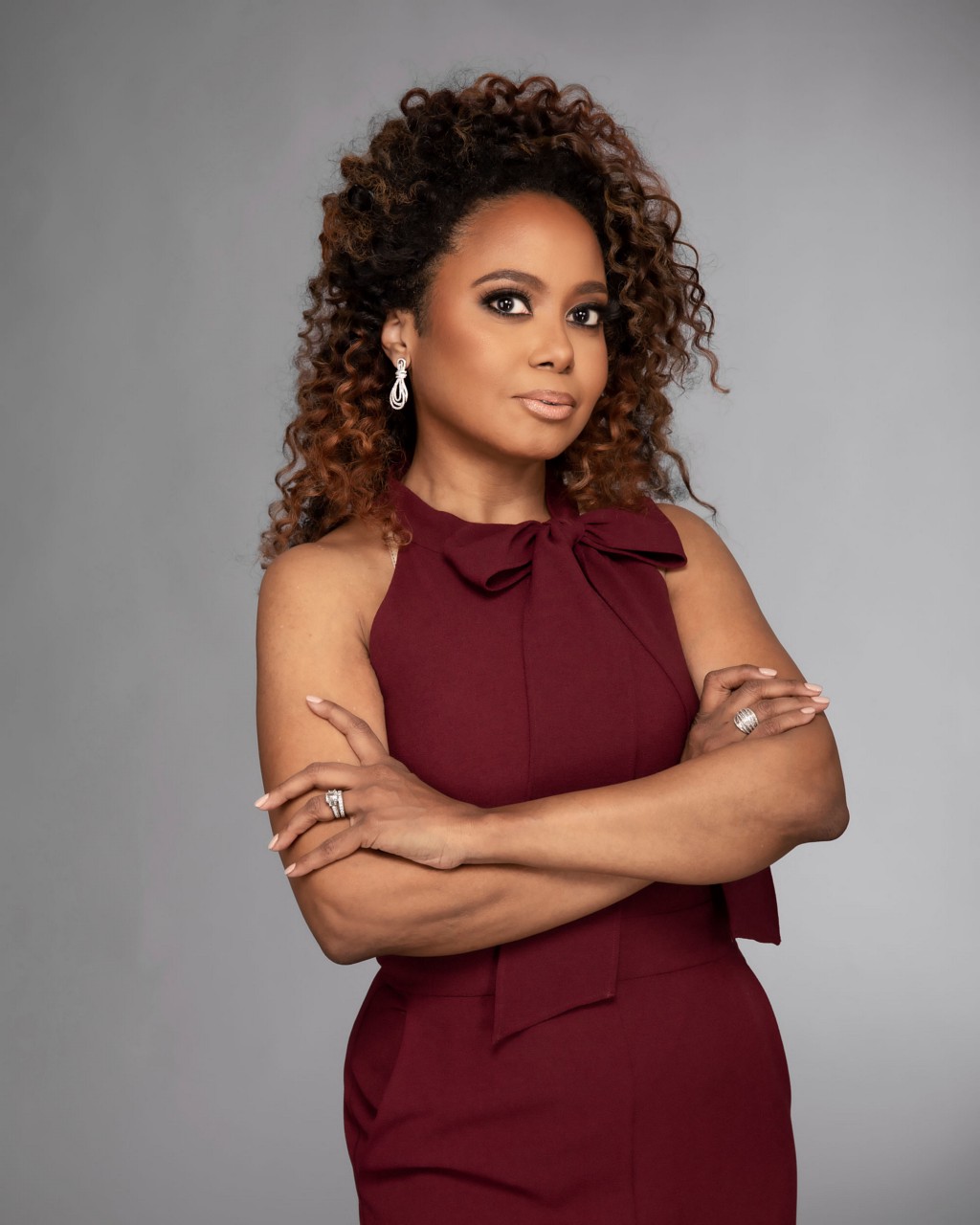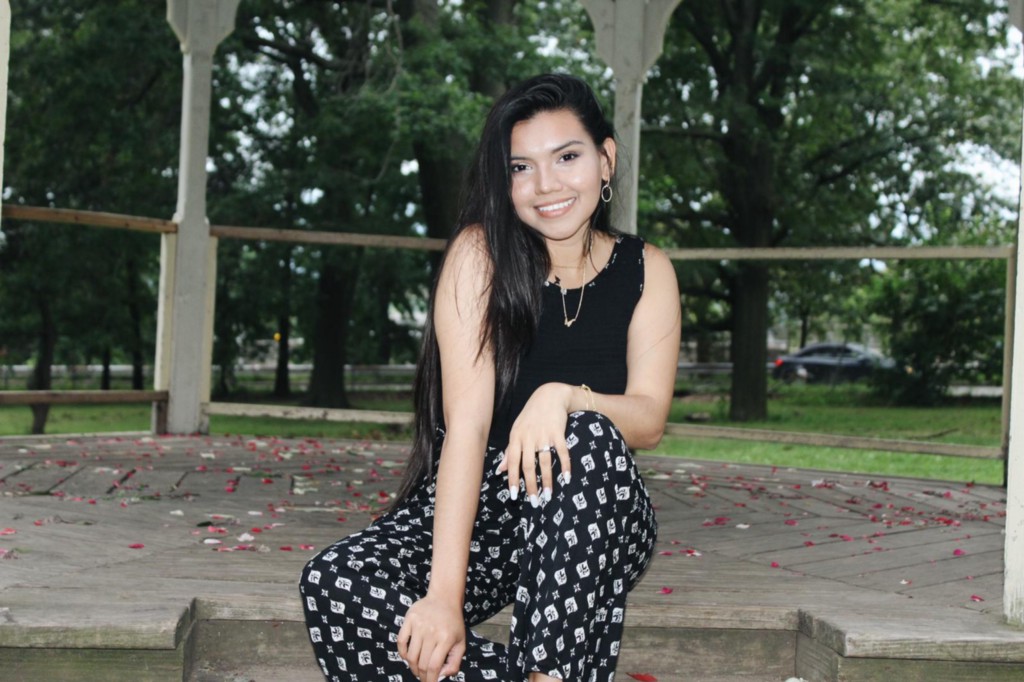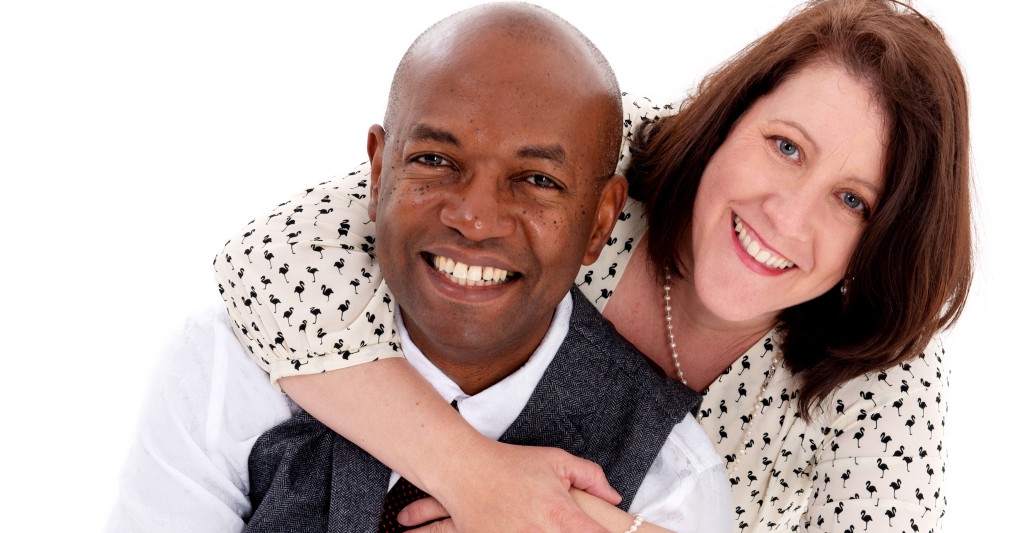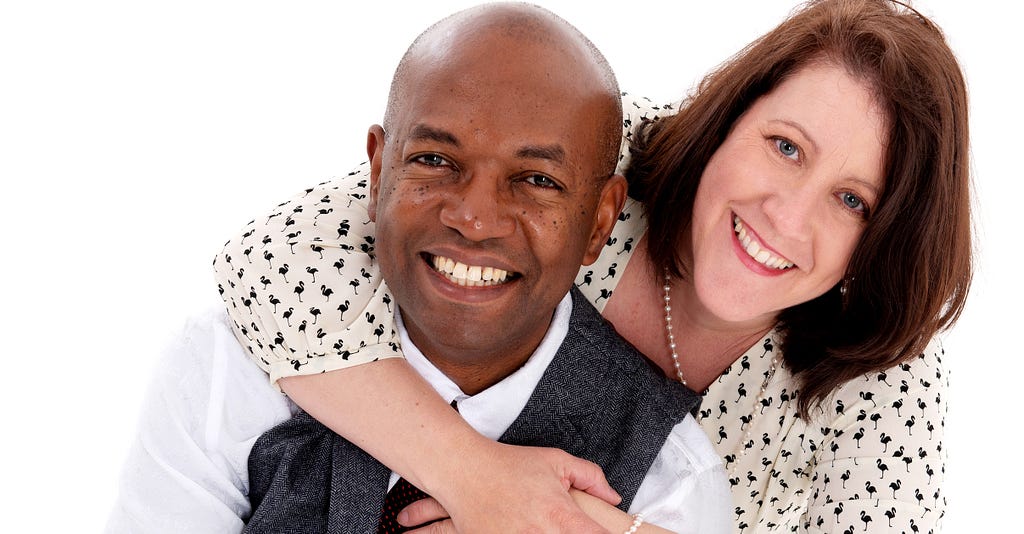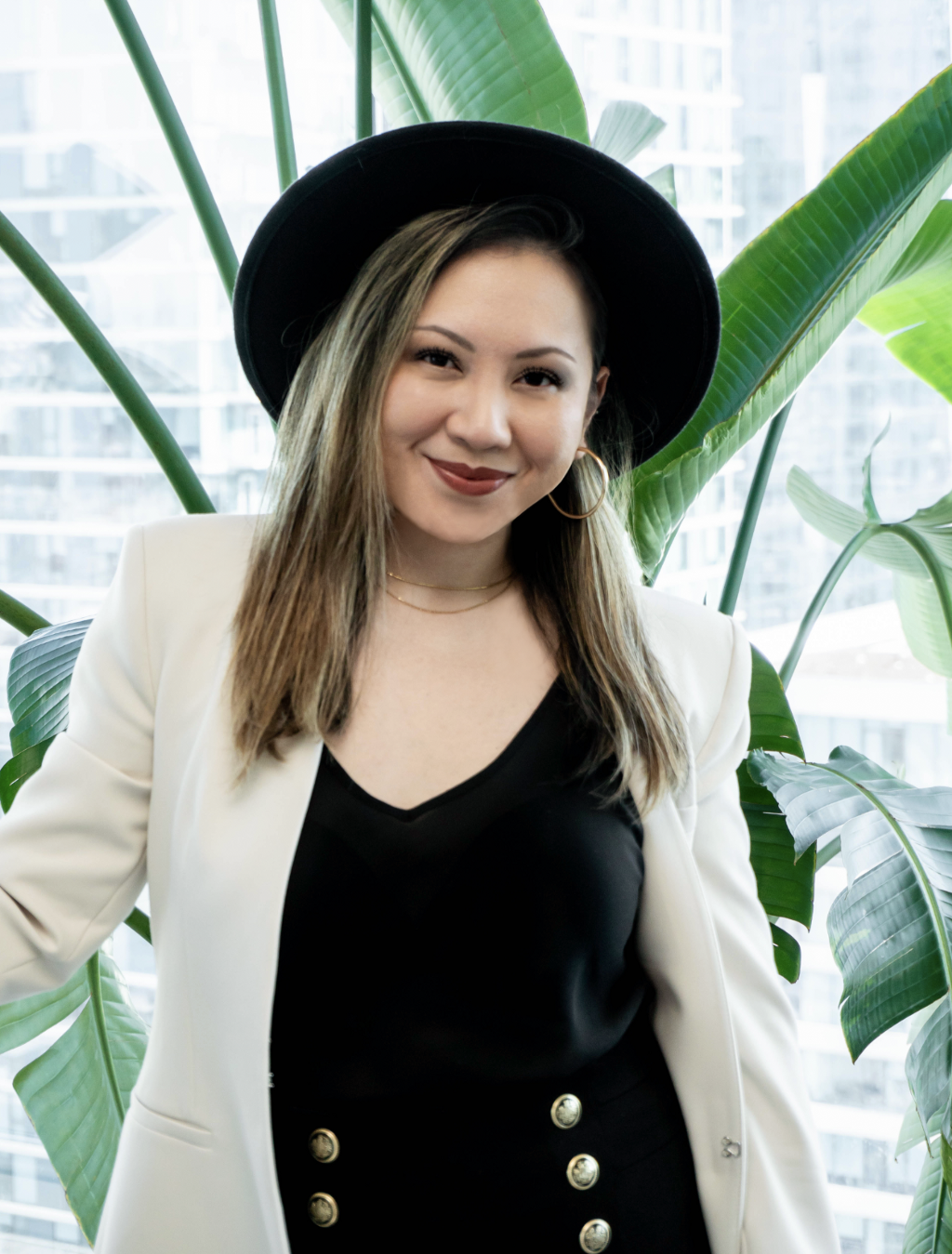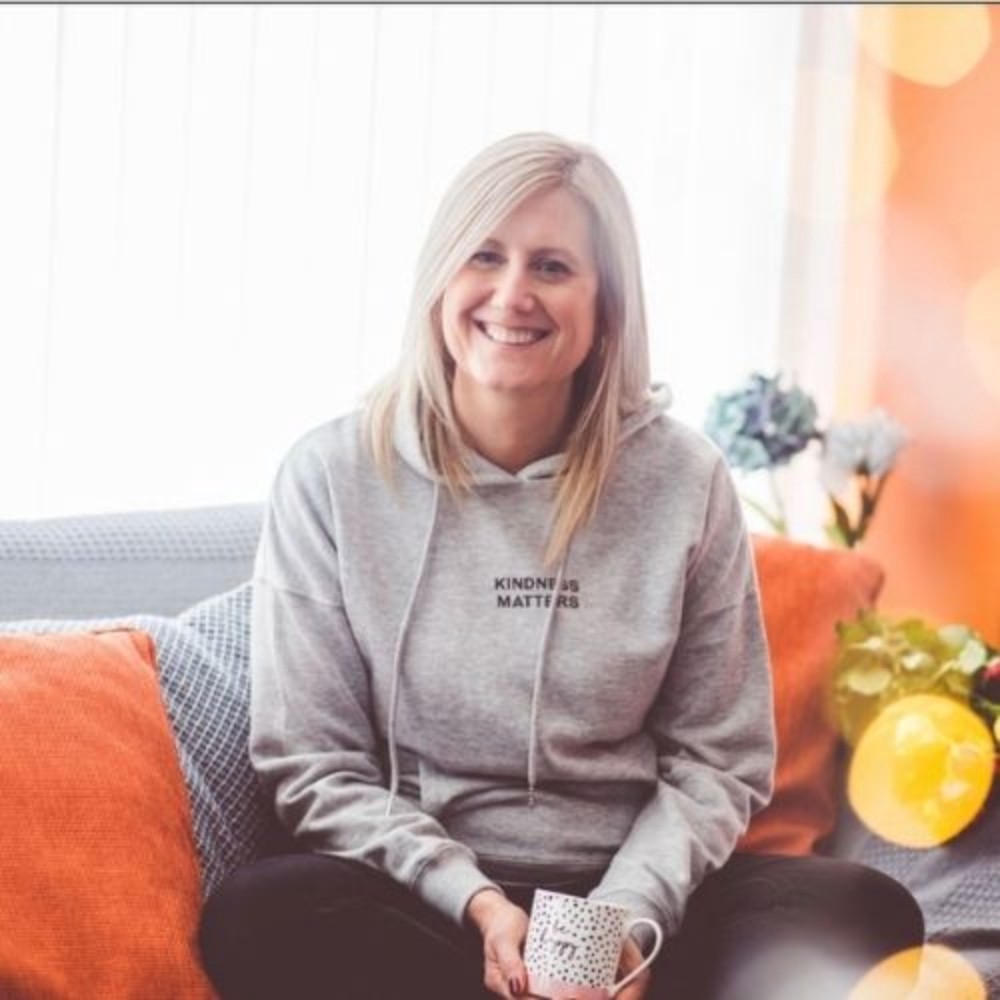Author Emily Gold Mears of Optimizing Your Health: 5 Lifestyle Tweaks That Can Dramatically Improve Your Wellbeing
An Interview With Candice Georgiadis

Oral health is something that most people disregard. Brushing one’s teeth and visiting the dentist annually is not sufficient oral care. Second only to the gut, the mouth is filled with a large and diverse set of microbes. Replace mouthwash, toothpaste and other oral care products filled with toxic chemicals with non-toxic brands. As an example, a friend of mine suffered from overly sensitive teeth and as soon as he switched toothpastes to a non-toxic brand, his teeth felt better.
As a part of our series about “5 Lifestyle Tweaks That Will Dramatically Improve One’s Wellbeing”, I had the pleasure of interviewing Emily Gold Mears.
Emily Gold Mears is a well-respected citizen scientist and author of Optimizing Your Health: An Approachable Guide to Reducing Your Risk of Chronic Disease (Post Hill Press, May 17, 2022). A former attorney, Gold Mears shifted her advocacy efforts to seek information on optimizing one’s health through extensive research analysis in science and medicine. Her research focuses on the intersection of functional and allopathic medicine, and the critical requirements for individuals to become their own healthcare advocates. She is actively involved in several nonprofit organizations, most of which are focused on health-related research. For more information, visit www.emilygoldmears.com.
Thank you so much for doing this with us! Our readers would love to “get to know you” a bit better. Can you share with us the story about how you first got involved in fitness and wellness?
My journey with fitness was easy, it was my wellness journey that needed more work!
I began my fitness journey by with a daily running practice beginning when I was 14 years old and continuing until about 5 years ago. I am disappointed that I had to stop running but my knees couldn’t handle the pounding any longer. However, I also started weight training in my 20’s to support my running efforts and I continue weight training today. Being physically active has always been important to me.
My journey into wellness started years later. Despite my active lifestyle, I disregarded nutrition, proper sleep habits and other aspects of wellness for most of my life. It was when my father began to decline from dementia that I frantically began researching to find something, anything to delay the progression of his disease. While I didn’t succeed in finding anything helpful for my father, I realized that I needed to make several changes in my own lifestyle choices. It was this heartbreaking time in my life that I transitioned to becoming a citizen scientist, and why I began the journey to writing my new book Optimizing Your Health.
Can you share the most interesting story that happened to you since you started your career?
I never planned to write a book, just like I never planned to change my career in law. Like most people during the pandemic lockdown I needed to find a way to remain productive and mentally engaged. For years after my father’s death, I had been collecting vast amounts of research from attending scientific, medical and biohacking conferences, taking online classes, reading books about health and reading daily science and medical newsletters. I decided that I would gather all of my research and organize it into a comprehensive source. I thought, if nothing else, I will have a great source for reference purposes. I compiled files for 19 different topics and I began to write. I absolutely loved the process of writing the book but knew nothing about the publishing industry. If I had been aware of the many obstacles I faced in an attempt to get my book published, I probably would have hesitated in going forward! But I am so happy that I found a publisher that believed in me and supports my quest to share vital information with others struggling to understand how to prioritize their health.
Can you share a story with us about the most humorous mistake you made when you were first starting? What lesson or take-away did you learn from that?
A humorous mistake that I made was submitting too long of a first draft of my manuscript to my editor. I was told, in no uncertain terms, that my manuscript was way too long and people wouldn’t read all of it. I quickly learned there is a word limit that the publishing company gives their authors and I was over by a full one third! It was difficult for me to get the draft down because I thought all of my information was valuable and should be included. Let’s just say, I lost that pitch! I suppose the humor is that I have never been described as being at a lack for words. On the contrary, I can be a bit verbose!
Can you share with our readers a bit about why you are an authority in the fitness and wellness field? In your opinion, what is your unique contribution to the world of wellness?
I recognize there is no shortage of books in the wellness field. However, my book and my contributions to this field are unique in that I represent the consumer’s perspective. You will find most people in the health and wellness space have some kind of relevant degree (MD, naturopath, chiropractor, etc.) and they all seem to be selling something. I am not selling any products and have no bias or conflict of interest other than helping others live a healthier life with useful, actionable, evidence-based information. I love doing the research and can translate the clinical studies into language that is accessible by the everyday health consumer.
None of us are able to achieve success without some help along the way. Is there a particular person who you are grateful towards who helped get you to where you are? Can you share a story about that?
I agree that success is always achieved with the support of others. I don’t have one particular person to whom I’m grateful but rather several people I would acknowledge. The first is my father who was my inspiration for my research and for my book. It was a devastating experience to watch him decline and ultimately die from Dementia. I so wish I could give him a copy of my book. My sons have been both an inspiration as well as an enormous source of support. Whenever I had a technical or computer related issue (which was frequent), they always helped. A friend whom I met at a medical conference learned about my extensive research and incessant testing and experimentation and encouraged me to write a book. He was so supportive of my efforts that he offered to write the introduction to my book!
Finally, I am grateful to my editor at the publishing company who took a chance on me and provided helpful feedback throughout the process.
Ok thank you for all that. Now let’s move to the main focus of our interview. We all know that it’s important to eat more vegetables, eat less sugar, exercise more, and get better sleep etc. But while we know it intellectually, it’s often difficult to put it into practice and make it a part of our daily habits. In your opinion what are the 3 main blockages that prevent us from taking the information that we all know, and integrating it into our lives?
The first blockage is that people are very busy fulfilling all of their responsibilities and commitments in their life. It can be hard to add one more thing to everyone’s long list of things to do. Another blockage is that it’s easy to put things off when you are not directly faced with consequences. If you are not sick and your loved ones are healthy, it can be challenging to make sacrifices in your comfortable schedule and habits. It often takes getting sick or watching a loved one suffer to spring into action.
A third blockage is that behaviors become deeply ingrained. It is quite difficult to change well-established behavior and habits. It takes enormous determination and discipline to integrate lifestyle changes into our lives.
Can you please share your “5 Non-Intuitive Lifestyle Tweaks That Will Dramatically Improve One’s Wellbeing”? (Please share a story or an example for each, and feel free to share ideas for mental, emotional and physical health.)
1. Oral health is something that most people disregard. Brushing one’s teeth and visiting the dentist annually is not sufficient oral care. Second only to the gut, the mouth is filled with a large and diverse set of microbes. Replace mouthwash, toothpaste and other oral care products filled with toxic chemicals with non-toxic brands. As an example, a friend of mine suffered from overly sensitive teeth and as soon as he switched toothpastes to a non-toxic brand, his teeth felt better.
2. Invest in a non-toxic mattress. Depending on the state in which you live, there are laws mandating the addition of fire retardant and other highly toxic chemicals to your mattress. We spend 7–8 hours in bed and absorbing all of the chemicals from our mattress adds to our overall toxic burden. I switched to a non-toxic mattress several years ago and I sleep better and wake up more well rested.
3. Focus on NEAT (non-exercise activity thermogenesis). This is associated with your resting metabolic rate, which is a measure of how many calories you expend while breathing, resting, sleeping, eating and doing gentle activities. It also includes activities like cooking, gardening, house cleaning and even fidgeting. Learning about this was encouraging for me since I am a constant fidgeter. This may not in isolation lead to a longer life, but it is certainly heartening to learn that activities we take for granted can contribute to our overall wellbeing.
4. Optimize your circadian rhythms. These are biological processes which have the greatest impact on your sleep. They regulate all aspects of our health and when disrupted can cause a host of problems. One easy way to improve your circadian rhythms is to briefly expose your eye to sunlight within the first 30 to 90 minutes after waking. If you live in the Northern latitude, invest in a light box. I used to have bad sleep habits including going to sleep too late which also made waking up difficult in the morning. After I put this practice into action, it had a dramatic positive impact on my circadian rhythms and my sleep.
5. At the end of your shower, turn the water to cold for 30–90 seconds. While at first, this is highly unpleasant and truthfully, I find that it continues to be unpleasant, there is a great deal of evidence supporting the benefits of cold exposure. It boosts your immune system and is thought to extend your longevity.
As an expert, this might be obvious to you, but I think it would be instructive to articulate this for the public. Aside from weight loss, what are 3 benefits of daily exercise? Can you explain?
As a lifelong exerciser, my favorite benefits from consistent exercise are improved sleep, mental clarity and stress reduction. One of my daily goals is to become sufficiently tired so that I fall asleep easily. On the rare day when I don’t do any form of exercise, I find I don’t fall asleep as easily as the days when I do exercise. This is motivation for me to get some form of exercise every day, even if it’s just a walk. When I used to run daily, I found it to be meditative. I did my best thinking while running. I can no longer run daily but I do find that most forms of exercise improve my mental clarity. There is evidence that a critical benefit of exercise is the production of brain-derived neurotrophic factor, known as BDNF. This promotes brain functioning and I definitely feel more mentally clear after exercise. While stress reduction is related to mental clarity, it is another benefit that I derive from consistent exercise. When the day gets away from you, and it so frequently does, exercise can be quite calming.
For someone who is looking to add exercise to their daily routine, which 3 exercises would you recommend that are absolutely critical?
I think the three most critical forms of exercise are weight training (aka resistance training), cardiovascular training and high-intensity interval training (HIIT). Weight training is critical for your metabolism, building muscle and maintaining bone density. Cardiovascular training is critical for increasing your heart rate and both blood and oxygen flow to the brain. HIIT is defined as short bursts of exercise followed by lengthy periods of low intensity exercise. The benefits of HIIT include improvements in cardiorespiratory and metabolic health, body fat reduction, improved mental health, improved sleep and stress reduction.
Is there a particular book that made a significant impact on you? Can you share a story?
One of the many books which I have read that had a significant impact on me is called “How Not To Die” by Michael Greger, M.D., FACLM. I read this book several years ago and found it both enlightening and disturbing. My initial takeaway was that everything we eat, drink, and do is killing us! After processing all of the information, I calmed down and applied the most salient details and settled on an approach where I would do the best that I can do to avoid dying in the near future!
If you could start a movement that would bring the most amount of good to the most amount of people, what would that be?
I would love to start a movement that would help a large percentage of society have access to healthier food options. While there are so many potential movements that I can think of, this is a huge problem for countless Americans and could be drastically improved if government began subsidizing grocery stores into moving into underserved communities. It is appalling that so many people have little or no access to healthy food. When one is faced with buying their food at a 7–11 type store, it becomes nearly impossible to eat a healthy diet. Improving this egregious situation will require a collaborative effort from both the private and the public sector but would improve so many lives.
Another movement (can I pick two?) that I would love to start is one that eliminates the ubiquitous amount of misinformation and conflicting information available to the average consumer. While this issue affects so many aspects of society today, one area that I could fix is the field of nutrition. Nutrition is one of the most confusing and conflicting areas of science. While we all know there are many reasons for this, one small way of fixing it is to always have opposing views presented at the same time. In other words, if there is someone discussing the benefits of a vegetarian diet, there should be someone else discussing the benefits of adding animal products to your diet. This should take shape as a panel discussion and that way people could learn both sides of issues and make their own conclusions. This by the way applies to political discourse as well!
Can you please give us your favorite “Life Lesson Quote”? Do you have a story about how that was relevant in your life?
My favorite “Life Lesson Quote” is attributed to Winston S. Churchill It is “Success is stumbling from failure to failure with no loss of enthusiasm.” We learn our best lessons from our failures and someone who never fails is not trying new things.
We are very blessed that some of the biggest names in Business, VC funding, Sports, and Entertainment read this column. Is there a person in the world, or in the US whom you would love to have a private breakfast or lunch with, and why? He or she might just see this if we tag them.
I have great admiration for people who use their money to help society. Recently, I read that John Doerr gave Stanford University $1.1 billion to support the University’s new School of Sustainability. Climate change affects every aspect of our planet as well as our individual health. I applaud John Doerr for stepping up and helping with this critical issue and have him on the top of my list for a dream lunch!
What is the best way our readers can follow you online?
You can follow me on Instagram (@emilygoldmears), Facebook (Emily Gold Mears) and my website (emilygoldmears.com). You can also grab a copy of my book by visiting: https://www.emilygoldmears.com/book#order
Thank you for these fantastic insights. We wish you only continued success in your great work!
Author Emily Gold Mears of Optimizing Your Health: 5 Lifestyle Tweaks That Can Dramatically Improve… was originally published in Authority Magazine on Medium, where people are continuing the conversation by highlighting and responding to this story.


